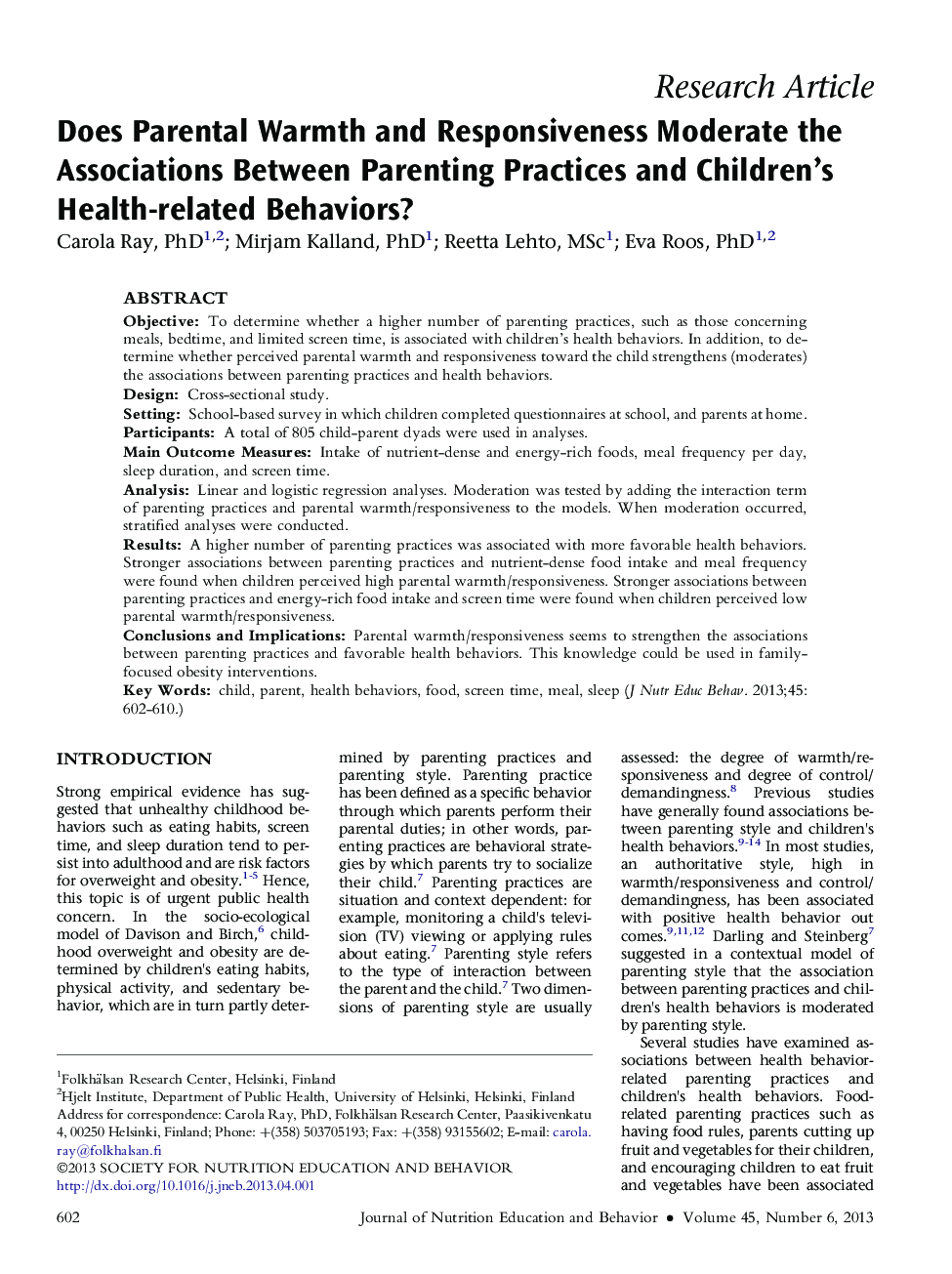| Article ID | Journal | Published Year | Pages | File Type |
|---|---|---|---|---|
| 362005 | Journal of Nutrition Education and Behavior | 2013 | 9 Pages |
ObjectiveTo determine whether a higher number of parenting practices, such as those concerning meals, bedtime, and limited screen time, is associated with children's health behaviors. In addition, to determine whether perceived parental warmth and responsiveness toward the child strengthens (moderates) the associations between parenting practices and health behaviors.DesignCross-sectional study.SettingSchool-based survey in which children completed questionnaires at school, and parents at home.ParticipantsA total of 805 child-parent dyads were used in analyses.Main Outcome MeasuresIntake of nutrient-dense and energy-rich foods, meal frequency per day, sleep duration, and screen time.AnalysisLinear and logistic regression analyses. Moderation was tested by adding the interaction term of parenting practices and parental warmth/responsiveness to the models. When moderation occurred, stratified analyses were conducted.ResultsA higher number of parenting practices was associated with more favorable health behaviors. Stronger associations between parenting practices and nutrient-dense food intake and meal frequency were found when children perceived high parental warmth/responsiveness. Stronger associations between parenting practices and energy-rich food intake and screen time were found when children perceived low parental warmth/responsiveness.Conclusions and ImplicationsParental warmth/responsiveness seems to strengthen the associations between parenting practices and favorable health behaviors. This knowledge could be used in family-focused obesity interventions.
